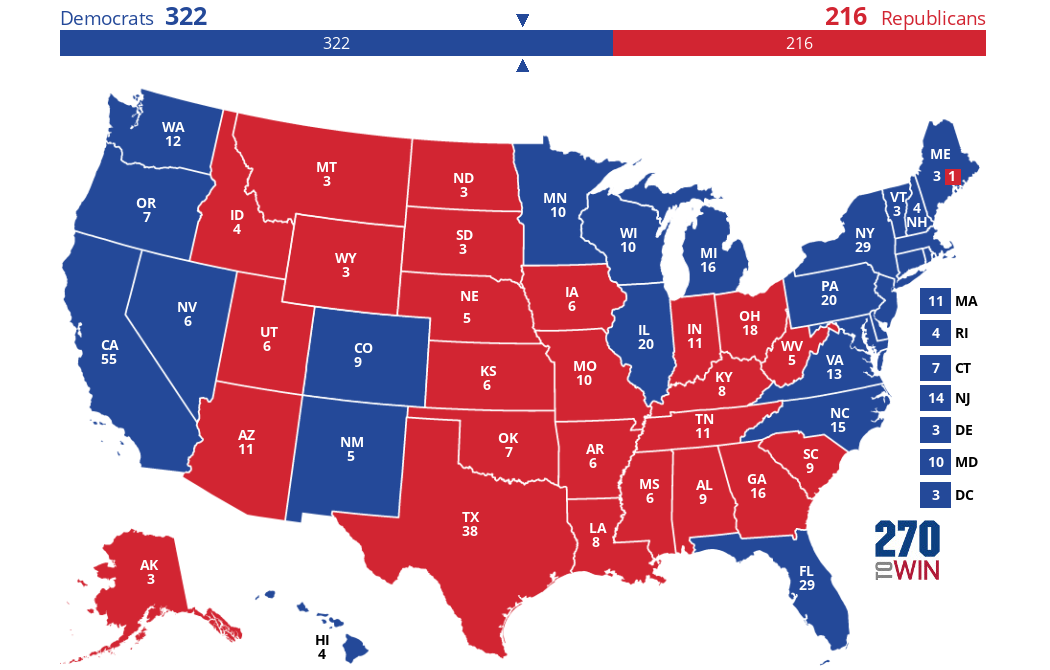It seems a little incredible to say, “well, that went worse than any of us imagined it could.”
But there is one unavoidable truth about this President: he maintains his ability to surprise.
Last night’s presidential debate went poorly for both men, of course. Trump’s decision to throw a 90-minute tantrum as a way to drag down and/or diminish the front-runner will get most of the attention and discussion today. But Biden didn’t do terribly well, either. Some will argue that he managed to maintain some dignity and rode it out the best he could. Others will point to a couple gaffes (he was both for and against the Green New Deal) or say his occasional response-in-kind (“Shut up, man,”) made him look nearly as bad as Trump.
But after all the sound and fury, there were two moments that stood out to me. The first was a statement by Trump that drew a lot of attention last night and will probably go down as one of his greatest hits; the “I would tell them to stand back and stand by” comment in reference to the Proud Boys.
As many have noted, Trump here is signaling yet again that he embraces and encourages the worst elements of American society: the white supremacists, Nazis, and other hate groups (such as the Proud Boys) that have surfaced during his presidency. His indifference to racism and bigotry has given permission to these groups to consider themselves just another normal part of life in the United States.
Just as Hitler used the Brown Shirts to violently suppress his opposition, Trump is signaling violent hate groups that they may be of use, if the election night results don’t go his way. This is, of course, terrifying to all of us who want the American experiment in representative democracy to survive and thrive. The prospect of the United States becoming another authoritarian, failed state has never been closer.
I was struck by the phrase—it seemed too well-constructed and succinct to have been spontaneous; I suspect he had this in his pocket just in case he was asked directly to reject the idea of violence after this election. If it was planned, of course, that makes the use of this kind of language all the worse—but it’s clear that Trump went into this debate determined to dive headlong into the gutter.
It's difficult to say why exactly he thought this nod to violence in front of the entire nation was a smart move. It’s hard for most rational people to see the method to his madness. But I suspect it makes perfect sense to him. God help us all.
Biden also had a moment that he seemed to have prepared for—the defense of his son Hunter from Trump’s low-blow attack on Hunter’s drug abuse problem in past years.
Trump and his closest cronies have spent a lot of time and effort trying to make Hunter Biden an issue, so it seems likely Joe Biden’s team had done their best to prepare for attacks concerning Hunter. In the chaotic give-and-take of the debate, the measured comments that Biden had probably prepared went out the window, but he did grab the opportunity to make a point that resonated with me, at least.
Biden had begun talking about his late son, Beau, and his service in the military. Trump tried—pretty successfully—to shift the discussion to Hunter Biden, Joe Biden’s other son. “I don’t know Beau,” Trump said dismissively, again showing his contempt, or at least indifference, towards those who have served in the military.
“Hunter got thrown out of the military… he was dishonorably discharged… for cocaine use,” Trump said.
Honestly, I think this was the point where most people would’ve lost it. No amount of preparation can truly take the sting out of that kind of crass, personal attack.
As a matter of fact, Hunter Biden was administratively discharged, not dishonorably discharged, for failing a drug test. But Joe Biden did something interesting here. He didn’t get into the weeds about exactly what happened to Hunter. He didn’t get into the mud about the improprieties and ethical questions surrounding Trump’s own children.
Instead, he admitted the truth: his younger son had struggled with a drug addiction. He noted that many Americans have had similar problems, and like many, Hunter had overcome his addiction. “I’m proud of my son,” Joe Biden said.
Have you ever heard Donald Trump speak with humility and compassion in this way? Have you ever even heard him say he’s proud of a family member? Maybe it’s happened. Certainly not in this type of situation, or on this type of stage. Whatever else we can conclude about the two men in this debate, one thing is clear: Hunter Biden has a good father.
Humility, compassion, and grace are not the tools of trade that Donald Trump uses. He bullies, he rants, he lies, he brags. He will continue to do these things during this election season; he will continue to do these things if he is re-elected.
With the polls clearly showing him behind and likely to lose, President Trump has decided to attempt to drag down his opponent, and the country, in such a way that the election itself will be as muddled and chaotic as his presentation Tuesday night. He has signaled, again, that he is willing to plunge the country into civil war rather than give up power.
That is his intent.
The only question that remains is, will we let him?








 Click the map to create your own at
Click the map to create your own at 